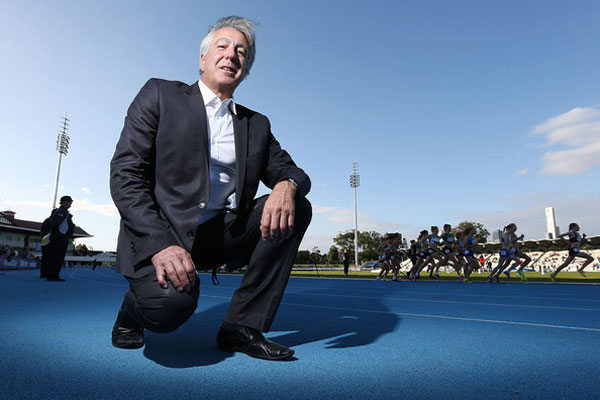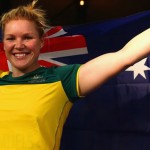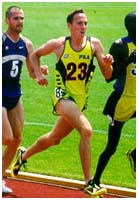Athletics in Australia dates back to 1810, when Dicky Dowling won the first documented event, a 50 yard sprint, in Hyde Park, Sydney.
Since these humble beginnings, the sport has captured the imagination of millions of people across the country. Some of Australia’s most iconic successes in sport both here at home and on the world stage are built around the performances of athletes on the track, in the field or on the road.
This proud history is what initially attracted me to competing as a sprinter and long jumper and today it is what continues to motivate me as Athletics Australia President.
It is vital that we, as the custodians of the sport today, continue to develop this rich culture of success. We must ensure that athletics in Australia continues to be something that motivates thousands of people to participate as athletes, coaches or officials, as well as inspiring the next generation to become involved.
Clearly we need to make changes, whilst maintaining those things that make the fundamentals of our sport so appealing. We must remain relevant in a fast changing and competitive world. There are an increasing number of ways for people to spend their limited leisure time. Our offerings need to appeal to key groups if we are to increase our market share. We need to engage with recreational participants and the general public in different and creative ways. These are our club members, athletes, coaches, officials, participants and fans of the future.
To ensure that we are on the right track, we need to develop a very clear vision for the future. We want your help to get this right. Over the coming months, Athletics Australia, in conjunction with our key stakeholders, will lead a conversation amongst the broader community about what success will look like for athletics in ten years. This will be your opportunity to have your say in the future direction of our sport.
The discussion began last month at a meeting involving the Executive Directors and Chief Executives of our member associations, as well as our senior management team. A two-day workshop, led by our newly appointed CEO, Phil Jones. Phil has commenced with Athletics Australia after recently serving as our Interim Chief Executive and as CEO of Yachting Australia for seventeen years. At this meeting, the group developed a set of strategic themes that will be used to guide the broader conversation.
The aim is for clubs, centres and other groups, including coaches and officials to discuss the themes and provide feedback to Athletics Australia. Each theme will be led by a small working group of key stakeholders that will consider all the input and refine a 10-year vision. Time will be spent discussing the themes at meetings already planned. In some states, additional, specific meetings will be held. An online portal is being established so that individuals and groups can send in their written contributions. Every idea will examined, every comment noted.
The vision that results will drive the development of a new strategic plan for the sport. I, together with my fellow Athletics Australia Directors and our CEO, look forward to being involved.
I encourage you to participate when given the chance.
Engagement of the athletics community in determining the direction of the sport as a whole is vital. Working together, we can make major improvements in our sport that will see athletics become the envy of the Australian sporting landscape. It is our shared responsibility to present the sport in a positive manner, in turn ensuring an air of excitement for those that are lucky enough to engage with us in the months and years to come.
We look forward to embracing and promoting the many fantastic initiatives currently being driven by stakeholders including our member associations, Little Athletics Australia, the Australian Track and Field Coaches’ Association, Australian Masters Athletics and Athletics Australia.
One such success story recently was the appointment of Craig Hilliard to the position of Athletics Australia Head Coach. Vital to the execution of our high performance programs, this decision was reached after an extensive recruitment process that included due diligence on a number of worthy candidates.
This great outcome for athletics in Australia was followed by the Oceania Athletics Championships in Cairns, Queensland.
Australia’s team of 58 competed admirably alongside some of the best athletes from across the Pacific region and I congratulate them on their performances.
The Championships coincided with IAAF World Athletics Day celebrations and Athletics Australia was proud to collaborate with the Oceania Athletics Association to deliver events including an athletics clinic for young athletes attended by Lord Sebastian Coe and Sergey Bubka.
Athletics Australia and the Australian Sports Commission also launched IAAF Nestlé Healthy Active Kids Athletics as a pilot program of Sporting Schools in the northern Australian city.
Sporting Schools is a national program available to all Australian primary schools. It will engage more children in more sport based activity and attempt to convert their interest into club based membership. It aims to help children foster a lifelong interest in sport, gain a healthier mind and body and, importantly, to have fun while participating.
This success carries through to many of our member associations in the midst of winter athletics events as well.
The first round of cross country hosted by Athletics Victoria, for example, welcomed 1182 athletes to Jells Park, representing a record number of starters and an 18.2% increase on the previous best result. In Western Australia, they are celebrating more youth and junior athletes than ever before earning selection to national squads and Australian teams.
Athletics New South Wales and Queensland Athletics boast record membership numbers, with 10,696 donning the light blue as at today and 9,478 wearing maroon.
Athletics in Australia has faced many challenges, but it is our history of success that we must all take pride in.
The positives of our sport far outweigh the frustrations we all endure on occasion and I encourage you to join us in a conversation that will invoke change for the better now and into the future.
David Grace QC




























Speak Your Mind